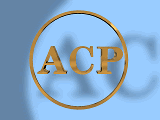American Catholic Press
16565 S. State Street, South Holland, Illinois 60473
|
||||||||||||||||||||
|
|
||||||||||||||||||||
|
||||||||||||||||||||
by Bishop Donald Trautman The International Commission on English in the Liturgy (ICEL) proposes the following translated text:
Can We Participate? This prayer is not an isolated example. While the latest ICEL translations for the proper of the saints and the commons are improved, we still encounter the following: “O God, who suffused blessed John with the spirit of mercy” (Collect for March 8) and “Cyril, an unvanquished champion of the divine motherhood” (Collect for June 27) and odd expressions like “What you have charged us to believe will taste sweet to the heart” (Collect for April 21). Does the heart “taste?” The Right Language Will the priest and people understand the words of Eucharistic Prayer 2: “Make holy these gifts, we pray, by the dew of your Spirit”? This translation was among the top 10 texts that the U.S. bishops in their consultation considered most problematic, but still ICEL did not change it. In the new missal you will hear awkward phrases like “We pray you bid.” This is not American English. Ponder these concrete examples and judge for yourself. What happened to the liturgical principles of the “Constitution on the Sacred Liturgy”? The council fathers of Vatican II stated: “Texts and rites should be drawn up so that they express more clearly the holy things which they signify; the Christian people, as far as possible, should be able to understand them with ease and to take part in them fully, actively and as it befits a community” (No. 21). Note the words “with ease.” This is the norm, the expressed wish in the constitution. This is a prerequisite that calls not just for the accuracy of translated texts but for the easy understanding of those texts. The council fathers of Vatican II had a pastoral sense and focused on John and Mary Catholic. Why have the new translations become so problematic, so non-pastoral? What is the basic difficulty? Consult and Communicate! When the instruction Liturgiam Authenticam (On the Use of Vernacular Languages in the Publication of the Books of the Roman Liturgy) was issued in 2001, the executive board of the Catholic Biblical Association stated that the document “contains provisions detrimental to solid biblical scholarship…and advocates policies that make it difficult to produce good vernacular translations.” Those were prophetic words that have now been verified. Did anyone listen? Liturgiam Authenticam rightly stresses fidelity and exactness in rendering liturgical and biblical texts into the vernacular. For the authors of Liturgiam Authenticam, however, that means “as literal as possible.” That was not the mind of St. Jerome, the greatest Doctor of the Sacred Scriptures. Jerome was a precise translator but not a literalist. He himself said, “If I translate word by word, it sounds absurd.” Liturgical translations must communicate. If liturgical language is divorced from the reality of culture, communication is impossible. What is missing in the present moment, unfortunately, is the voice of liturgical scholars and the voice of the laity, the assembly. I was dismayed when I recently learned that our liturgists—professionals with degrees and experience, teaching at our academic institutions—did not have access to the work of ICEL. No wonder there has been such limited public scrutiny of these translated texts. Some bishops have consulted individual liturgical experts, but the learned societies of liturgists have been excluded. It would be pastorally prudent and so beneficial to translated texts destined for the worshiping assembly if the laity were involved in the preliminary process for judging the ICEL texts. The proposed translated liturgical prayers, for example, could be proclaimed to lay groups to elicit their initial reactions: What did they hear; what did they understand; did these texts lift their minds and hearts to God? Such input would be helpful to translators in perfecting the proclaimability of texts. If the language of the liturgy is inaccessible, how can liturgy catechize and convey the reality of the living, risen Son of God in the Eucharist? If the language of the liturgy is a stumbling block to intelligibility and proclaimability, then the principle lex orandi, lex credendi is severely compromised. If the language of the liturgy does not communicate, how can people fall in love with the greatest gift of God, the Eucharist? Church of God, judge for yourselves. Speak up, speak up!
|
||||||||||||||||||||

 the words “prefiguring
sacrifices of the Fathers” and “born ineffably of the
inviolate Virgin,” for example, resonate with John and Mary
Catholic? Is this prayer intelligible, proclaimable, reflective of
a vocabulary and linguistic style from the contemporary mainstream
of U.S. Catholics? Is the liturgical language accessible to the average
Catholic and our youth? Does this translated text lead to full, conscious
and active participation? I think not.
the words “prefiguring
sacrifices of the Fathers” and “born ineffably of the
inviolate Virgin,” for example, resonate with John and Mary
Catholic? Is this prayer intelligible, proclaimable, reflective of
a vocabulary and linguistic style from the contemporary mainstream
of U.S. Catholics? Is the liturgical language accessible to the average
Catholic and our youth? Does this translated text lead to full, conscious
and active participation? I think not.